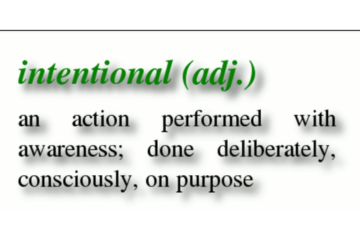
Are you guilty of busyness?
Yesterday, I had the pleasure of meeting a new client who joined our call in a whirlwind of frenzy. She said she might preform better if she could do more with less time, and referred to her “run on the bullet train”. Can you relate? Busyness has hit crisis levels. Busyness, as defined by Merriam-Webster is “the state of having or being involved in many activities”. The example they give is: As with “routine work and exercise, busyness as an end in itself”. During Covid we slowed down, now things have sped up again. Working in the office most of the time is back to pre-pandemic levels, work travel is in full swing and many of us are trying to catch up on those lost vacations, parties and weddings that did not happen during the pandemic. Even traffic is back. For me, at least, it feels more crazy now than before the pandemic. Busyness is back! |
#WiseWords
“The greatest enemy of good thinking is busyness.“
Worth the Share
 In this month’s issue of Harvard Business Review, they featured an article “Beware of the Culture of Busyness”.
In this month’s issue of Harvard Business Review, they featured an article “Beware of the Culture of Busyness”.
Since busyness is not celebrated in other countries like Italy for example, this quote sums up the challenge that busyness creates in our culture: “Busyness has become a status symbol.
People also consider those who exert high effort to be “morally admirable,” regardless of their output.”
To solve for this chronic problem with busyness, the author Adam Waltz suggests five things:
- Reward output not just activity: while this can be tricky, it is worth determining how you can adjust goals so that team members are compensated for what they actually deliver.
- Assess whether your organization is generating deep work and eliminating low value work: one of my clients is focused on this at his company. It was a real shift in their culture that is paying dividends.
- Force people off the clock: time-off is critical to living a full, healthy life. Detaching can be difficult for some but learning to take time off is good for your mental and physical health.
- Model the right behavior: a client, who was the executive director of a non-profit, took a three-week trip to Africa last year. After the initial shock, her team warmed to the idea of running the show while she was gone. She modeled the behavior and had the trip of a lifetime.
- Build slack into the system: this is a bold idea that sounds expensive for companies but when you invest, it can be a game changer. Seth Godin said: “systems with slack are more resilient”.
For much more detail on why we are addicted to busyness and what to do about it, read on.
And Finally...
 What can you do with this information about busyness? If you have been reading my blog for a while you will know that one of my favorite words is “intentional”. How are you spending your time? What do you want more of? What do you want less of? What can you cut out?
What can you do with this information about busyness? If you have been reading my blog for a while you will know that one of my favorite words is “intentional”. How are you spending your time? What do you want more of? What do you want less of? What can you cut out?
Perhaps you will do a busyness audit on your time, and determine how to add more slack into your days. Maybe you can take time to truly disconnect from technology and take a nice long vacation or two!
Have a great week.
Mary Jo


 Back to the workshop. There are dozens of different tactics that you can use to create a motivating environment for your team such as flexible scheduling, asking for their opinions, giving them time off, or stretch assignments.
Back to the workshop. There are dozens of different tactics that you can use to create a motivating environment for your team such as flexible scheduling, asking for their opinions, giving them time off, or stretch assignments.
 To get more granular about the topic of leadership, this Forbes article offers some specific advice. Here are author Jennifer Cohen’s six tips:
To get more granular about the topic of leadership, this Forbes article offers some specific advice. Here are author Jennifer Cohen’s six tips: Today, I worked with a client who clearly demonstrated Inspirational Leadership as he was talking about how he would address a thorny issue with two of his department heads. Inspirational Leadership is one of the competencies of Emotional Intelligence (EI).
Today, I worked with a client who clearly demonstrated Inspirational Leadership as he was talking about how he would address a thorny issue with two of his department heads. Inspirational Leadership is one of the competencies of Emotional Intelligence (EI).